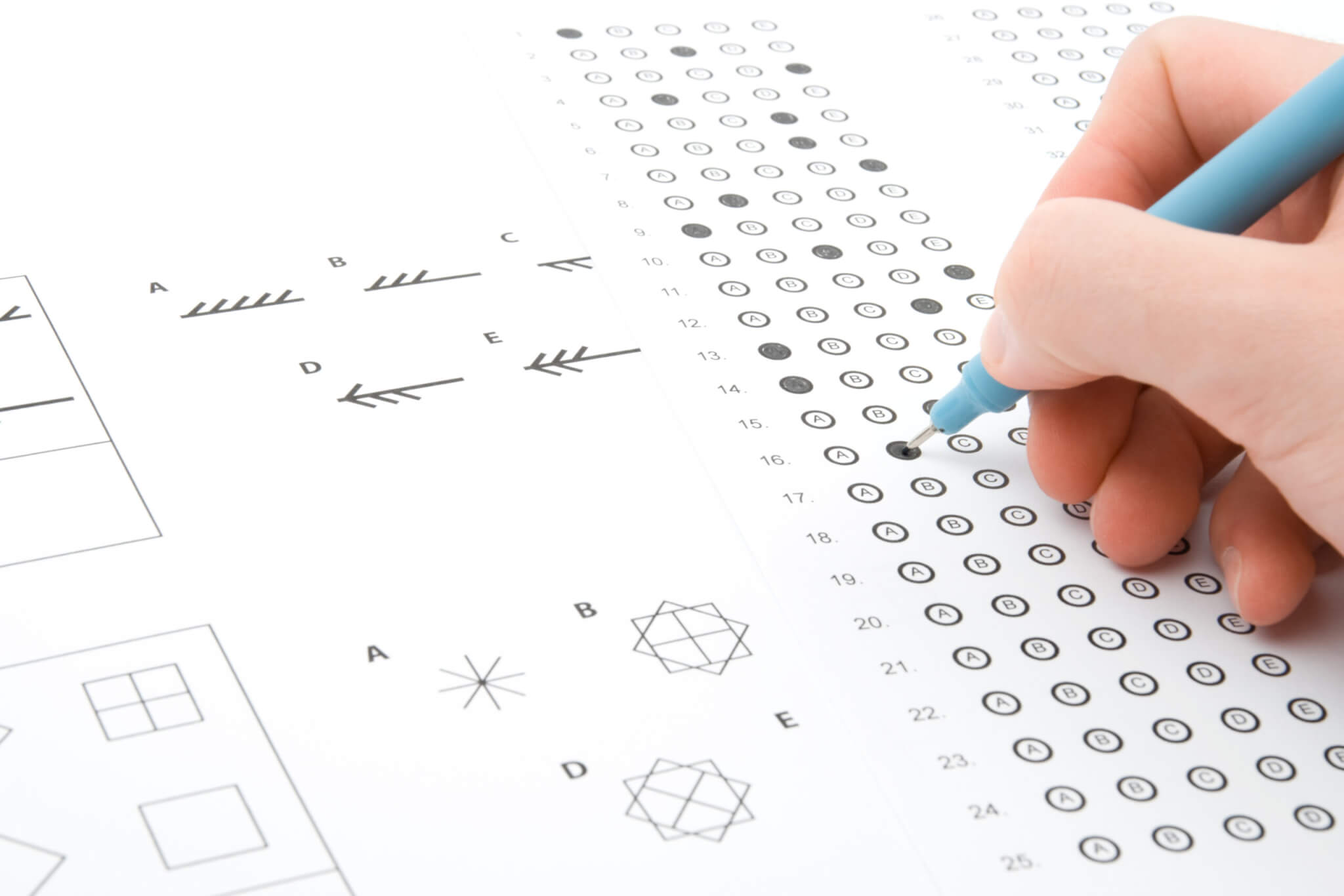We know what group is pulling these scores down based on the posts on this board. The dumbing down of America that was foretold many years back is occurring.

 studyfinds.org
studyfinds.org
MARCH 22, 2023
 by John Anderer
by John Anderer
EVANSTON, Ill. — IQ scores significantly increased from 1932 through the 20th century all over the world, with differences ranging from roughly three to five IQ points per decade. This phenomenon is known as the “Flynn Effect.” Now, however, a new study out Northwestern University suggests a “reverse-Flynn Effect” of sorts may be taking place in the United States.
This reverse-Flynn Effect was present across a large U.S. sample covering between 2006 and 2018 in every category — except one. Still, there were consistent negative slopes among three out of four cognitive domains.
Ability scores pertaining to verbal reasoning (logic, vocabulary), matrix reasoning (visual problem solving, analogies), and letter and number series (computational/mathematical) all dropped over the course of the study period. However, scores of 3D rotation (spatial reasoning) generally increased between 2011 to 2018.
Composite ability scores (single scores derived from multiple pieces of information) were also lower across the more recent samples. These score differences persisted regardless of age, education, or gender.
“It doesn’t mean their mental ability is lower or higher; it’s just a difference in scores that are favoring older or newer samples,” explains Dworak, a research assistant professor of medical social sciences at Northwestern University Feinberg School of Medicine, in a media release. “It could just be that they’re getting worse at taking tests or specifically worse at taking these kinds of tests.”
Study authors used the Synthetic Aperture Personality Assessment (SAPA) Project, a free survey-based online personality test that gives test-takers feedback focusing on 27 temperament traits (adaptability, impulsivity, anxiety, humor), in addition to their ability scores.
 Are Americans less intelligent or just performing worse on IQ tests? (© jirsak – stock.adobe.com)
Are Americans less intelligent or just performing worse on IQ tests? (© jirsak – stock.adobe.com)
Survey responses were analyzed from 394,378 Americans collected between 2006 to 2018 in an attempt to examine if cognitive ability scores changed over those 13 years. A smaller cohort of individuals (303,540) was also recruited between 2011 and 2018. The 3D rotation data, though, only exists for subjects who took the survey between 2011 and 2018.
To that end, Prof. Dworak and her colleagues are now attempting to access a dataset containing 40 years worth of data in order to conduct a follow-up study.
A change in societal values may have also affected IQ scores, Prof. Dworak adds. “If you’re thinking about what society cares about and what it’s emphasizing and reinforcing every day, there’s a possibility of that being reflected in performance on an ability test,” she continues.
For example, there’s been more emphasis on STEM education in recent decades. So, does that mean other academic areas, like abstract reasoning, are receiving less attention in schools?
Yet another factor could be a drop off in motivation. Since the SAPA Project is advertised as a personality survey, individuals who enrolled may have been more engaged with sections related to the measurement of temperament and less engaged with sections seemingly unrelated to personality.
And yes, there’s some tongue-in-cheek wordplay up there in the headline.
The study is published in Intelligence.

Are we growing more dumber? Americans’ IQ scores drop in four of five measurements
EVANSTON, Ill. — IQ scores significantly increased from 1932 through the 20th century all over the world, with differences ranging from roughly three to five IQ points per decade. This phenomenon is known as the “Flynn Effect.” Now, however, a new study out Northwestern University suggests a...
MARCH 22, 2023
EVANSTON, Ill. — IQ scores significantly increased from 1932 through the 20th century all over the world, with differences ranging from roughly three to five IQ points per decade. This phenomenon is known as the “Flynn Effect.” Now, however, a new study out Northwestern University suggests a “reverse-Flynn Effect” of sorts may be taking place in the United States.
This reverse-Flynn Effect was present across a large U.S. sample covering between 2006 and 2018 in every category — except one. Still, there were consistent negative slopes among three out of four cognitive domains.
Ability scores pertaining to verbal reasoning (logic, vocabulary), matrix reasoning (visual problem solving, analogies), and letter and number series (computational/mathematical) all dropped over the course of the study period. However, scores of 3D rotation (spatial reasoning) generally increased between 2011 to 2018.
Composite ability scores (single scores derived from multiple pieces of information) were also lower across the more recent samples. These score differences persisted regardless of age, education, or gender.
Sugarcoating the findings?
Despite the observed decline in IQ scores, corresponding study author Elizabeth Dworak posits people shouldn’t read these findings and think, “Americans are getting less intelligent.“It doesn’t mean their mental ability is lower or higher; it’s just a difference in scores that are favoring older or newer samples,” explains Dworak, a research assistant professor of medical social sciences at Northwestern University Feinberg School of Medicine, in a media release. “It could just be that they’re getting worse at taking tests or specifically worse at taking these kinds of tests.”
Study authors used the Synthetic Aperture Personality Assessment (SAPA) Project, a free survey-based online personality test that gives test-takers feedback focusing on 27 temperament traits (adaptability, impulsivity, anxiety, humor), in addition to their ability scores.

Survey responses were analyzed from 394,378 Americans collected between 2006 to 2018 in an attempt to examine if cognitive ability scores changed over those 13 years. A smaller cohort of individuals (303,540) was also recruited between 2011 and 2018. The 3D rotation data, though, only exists for subjects who took the survey between 2011 and 2018.
More IQ scores needed
This project did not attempt to determine the reason for the decline in IQ scores. That being said, researchers add there is no shortage of possible explanations and theories in the scientific community, ranging from poor nutrition, and worsening health to media exposures and changes to education. “There’s debate about what’s causing it, but not every domain is going down; one of them is going up,” Prof. Dworak notes. “If all the scores were going in the same direction, you could make a nice little narrative about it, but that’s not the case. We need to do more to dig into it.”To that end, Prof. Dworak and her colleagues are now attempting to access a dataset containing 40 years worth of data in order to conduct a follow-up study.
A change in societal values may have also affected IQ scores, Prof. Dworak adds. “If you’re thinking about what society cares about and what it’s emphasizing and reinforcing every day, there’s a possibility of that being reflected in performance on an ability test,” she continues.
For example, there’s been more emphasis on STEM education in recent decades. So, does that mean other academic areas, like abstract reasoning, are receiving less attention in schools?
Yet another factor could be a drop off in motivation. Since the SAPA Project is advertised as a personality survey, individuals who enrolled may have been more engaged with sections related to the measurement of temperament and less engaged with sections seemingly unrelated to personality.
And yes, there’s some tongue-in-cheek wordplay up there in the headline.
The study is published in Intelligence.





